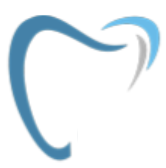Tooth extraction is a common dental surgery that involves the removal of a tooth from its socket in the bone. Extractions may be necessary if a tooth is damaged or decayed beyond repair or if there is not enough room for new teeth to grow. After tooth extraction surgery, it is essential to take care of your mouth to promote healing and prevent infections. In this article, we will discuss some essential tips on how to care for your mouth after tooth extraction.
Follow the Instructions Provided by Your Dentist
Your dentist will provide you with specific instructions on how you should care for your mouth after tooth extraction surgery. It’s crucial to follow these instructions carefully to promote proper healing and prevent complications. Your dentist may decide to prescribe pain medication and antibiotics or recommend an over-the-counter pain reliever to manage pain and prevent infections. They may also advise you to avoid certain foods or activities for a specific period.
Manage Pain and Swelling
It is quite common to experience pain and swelling after tooth extraction surgery. You can manage these symptoms by applying an ice pack to the affected area for roughly 10 to 15 minutes at a time. Place the ice pack on your cheek near the extraction site, and take a break for 10 to 15 minutes before reapplying. You can also take pain medication as prescribed by your dentist to manage pain and reduce swelling.
Avoid Smoking and Alcohol
Smoking and alcohol can delay healing and increase the risk of complications after tooth extraction surgery. Smoking can slow down your mouth’s healing process and increase the risk of infection, while alcohol can interfere with the absorption of the prescribed medication and cause bleeding. It is best to avoid smoking and alcohol for at least 24 hours after surgery or for as long as your dentist recommends.
Keep the Extraction Site Clean
Keeping the extraction site clean is essential to prevent infections and promote proper healing. Gently rinse your mouth with some warm salt water several times a day, starting 24 hours after surgery. You can make the salt water by mixing half a teaspoon of salt with eight ounces of warm water. Avoid using mouthwash or brushing the extraction site for the first 24 hours after surgery. After 24 hours, you can gently brush your teeth and tongue, avoiding the extraction site.
Eat Soft Foods and Avoid Hard and Crunchy Foods
It is vital to eat soft foods for the first few days after tooth extraction surgery to prevent irritating the extraction site. You can eat foods such as mashed potatoes, applesauce, scrambled eggs, and yogurt. Avoid hard and crunchy foods, such as nuts, chips, and popcorn, as they can dislodge the blood clot and delay healing.
Avoid Using Straws
Using a straw can create suction in your mouth, which can dislodge the blood clot and delay healing. It is best to avoid using straws for the first few days after surgery.
Rest and Take It Easy
Rest is essential after tooth extraction surgery to promote healing and prevent complications. Avoid physical activity for the first 24 hours after surgery and rest as much as possible. After 24 hours, you can resume light activity, but avoid strenuous exercise or heavy lifting for at least a week after surgery.
Final Thoughts
Tooth extraction surgery can be uncomfortable, but following the tips mentioned above can help promote healing and prevent complications. Remember to follow your dentist’s instructions carefully, manage pain and swelling, avoid smoking and alcohol, keep the extraction site clean, eat soft foods and avoid hard and crunchy foods, avoid using straws, rest, and take it easy. If you experience any unusual symptoms, such as severe pain, bleeding, or fever, contact your dentist immediately.
Get a tooth extraction in Leesburg with the help of Leesburg Bright Dental. We are a dental practice that provides individualized care to improve each smile. Our dental solutions offer the best care for each patient and their personal needs. Request an appointment now!

